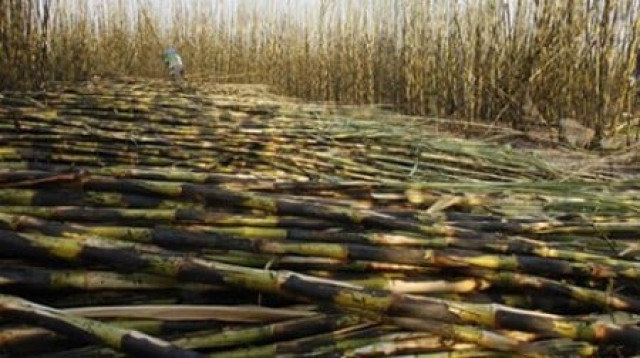Call to lift ban on gur’s transportation to Fata
Sugarcane traders resent cancellation of permits, threaten strike if decision not taken back.

Call to lift ban on gur’s transportation to Fata
The federal government had cancelled the permits of the suppliers of gur to the militancy-hit Federally Administered Tribal Areas (FATA) earlier this month on the grounds that the commodity was being smuggled to Afghanistan.
Former president of Gur Mandi Traders’ Association, Ihsanullah Khan, told The Express Tribune that they will launch a protest on Monday against the ban on transportation of the commodity if the ban was not lifted.
Khan said that the ban was imposed on the pressure of the powerful mill owners so that the sugarcane could be diverted to their mills.
“Most of the people in the tribal areas use gur (unrefined substitute of sugar), widely used in tea and other food items. This decision will deprive around 7 million tribal people of cheap commodity,” a trader from the region said.
Gur is available for Rs90 per kilogramme in the provincial capital. According to traders’ the commodity was available for Rs60 to 70 last year.
Khan said that there were over 6,000 ganees, a sugarcane crushing and gur-making mill in Charsadda, Peshawar, Mardan and other parts of the province. Over 60,000 people are associated with these ganees earning their livelihood. “The ban on the transportation of the commodity will affect hundreds of thousands of families,” he feared.
He said that the 6,000 ganees, produce around 15,000 to 20,000 bags of gur a day. The commodity is stocked in the Peshawar gur market, one of the largest markets in the province.
However, he was of the view that the prices of the commodity will drop further in the wake of the ban. He said that because of the high consumption of gur in Fata region it was no longer being supplied to Afghanistan.
There are at least 120 main dealers in the provincial metropolis, besides thousands of labourers and transporters and other people associated with the business.
Faiz Mohammad, a trader, said that the cancellation of permits was aimed at diverting the sugarcane supply towards sugar mills and it was taken at the behest of the millers.
He said that if the gur transportation to Fata is banned, the prices will come down in the market due to the low consumption of the commodity and this will force farmers to sell their produce to the
sugar mills.
Ashraf, another trader, said that gur is mostly used in Khyber-Pakhtunkhwa (K-P) and the tribal areas. He said that it is also exported to Afghanistan. However, the variety exported to Afghanistan is not consumed locally.
The cancellation of permits will only affect the farmers, who will be forced to sell the commodity at cheaper prices, adding that two different varieties of the commodity have dropped by Rs50 per kilogramme following the permit cancellation.
Meanwhile the traders on Thursday at a press conference described the ban as ‘unjustified’ and said that it was a ‘popularly item widely consumed by the poor people’.
They termed the government policy, including the fixing of sugarcane price at Rs150 per kilogramme, as ‘unjust’.
Published in The Express Tribune, November 27th, 2010.













COMMENTS
Comments are moderated and generally will be posted if they are on-topic and not abusive.
For more information, please see our Comments FAQ